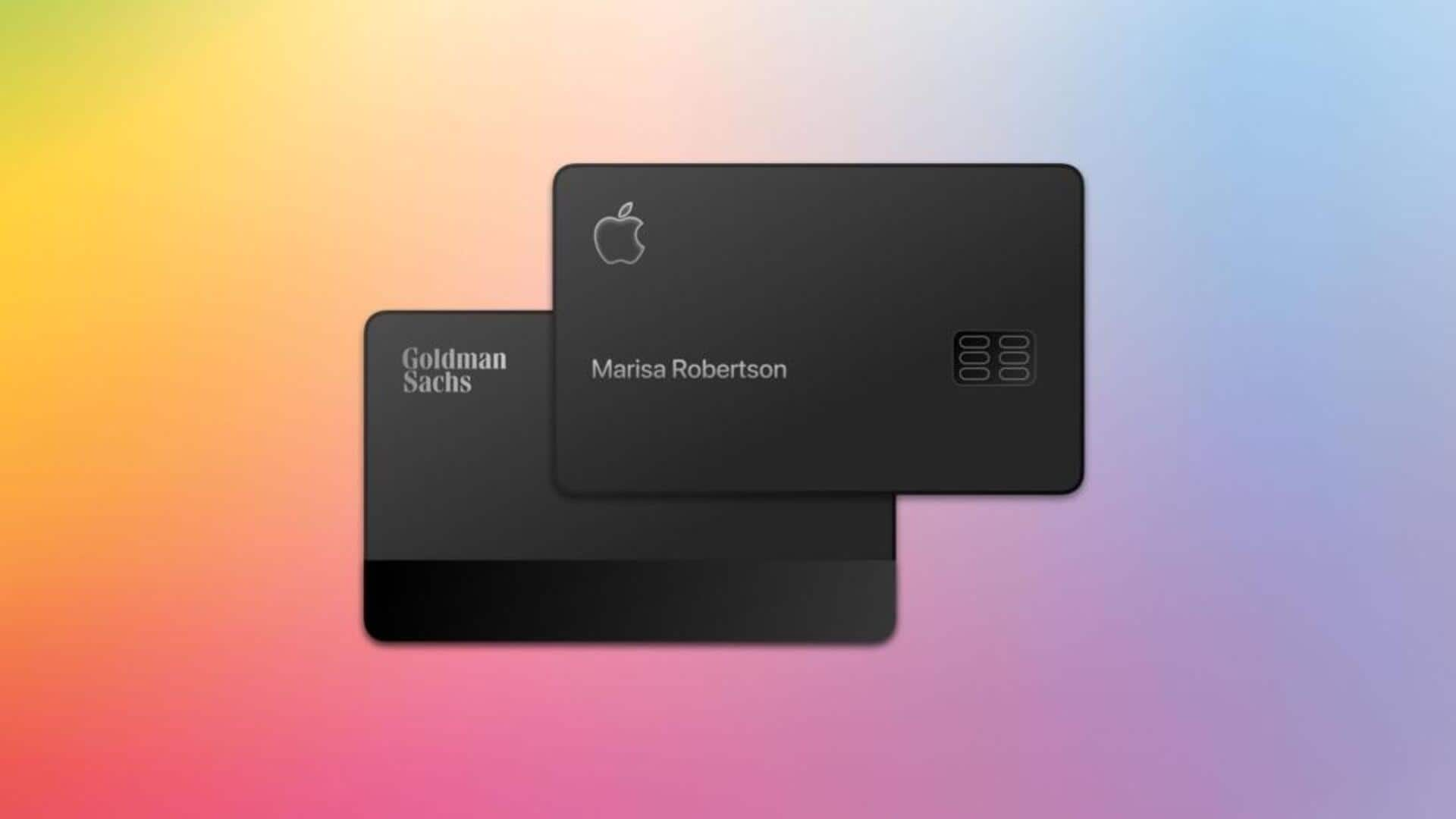
Apple and Goldman Sachs end credit card partnership: Here's why
What's the story
Apple has decided to end its credit card partnership with Goldman Sachs within the next 12 to 15 months, reports The Wall Street Journal (WSJ). This means that the partnership between Apple and Goldman Sachs in the consumer sphere, involving the Apple Card and the Apple Savings account, will come to an end. Apple in a statement to CNBC said that it will continue to provide "the best tools and services" for Apple Card customers.
Insights
What went wrong between the two companies?
When they first teamed up, the economic conditions were favorable and interest rates were low. At that time, Goldman Sachs, a newcomer to consumer banking, agreed not to charge certain credit card fees, like the interchange fee paid by merchants for accepting the Apple Card, as well as annual, late, or foreign transaction fees. However, this decision caused them to lose revenue, making it challenging for Goldman to manage the rising costs associated with the collaboration.
Details
Goldman tried to offload the deal to American Express
Rumors earlier this year hinted that Goldman Sachs was looking to exit its relationship with Apple as part of a strategy to reduce its consumer business. The bank reportedly held discussions with American Express to try to transfer the partnership to American Express, but the Apple Card must operate on the Mastercard network until 2026 due to an existing agreement. Amex expressed concerns about loan loss rates and other aspects of the program, leaving the status of the talks uncertain.
What Next?
Synchrony Financial considering taking over Apple Card
The WSJ also revealed that Synchrony Financial, the leading issuer of store credit cards, has contemplated taking over the Apple Card. Since 2019, Goldman Sachs and Apple have collaborated on the Apple Card, as well as the high-yield Apple Savings account and the Apple Pay Later feature. Replicating a similar deal with another issuer might prove challenging due to the Apple Card's limited revenue.